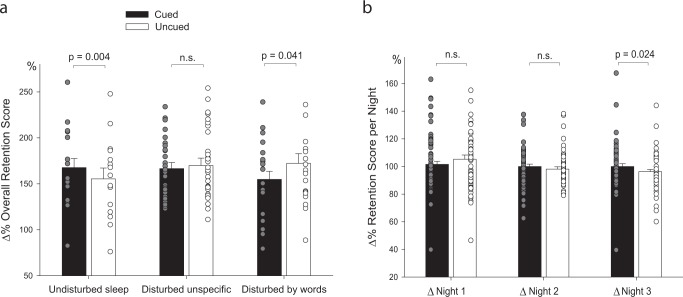Fig. 2.
Results. a Change in overall memory performance across all three nights with TMR. In undisturbed sleepers (n = 15), TMR during sleep at home significantly increased memory for the translation of Dutch words presented during sleep (cued) as compared to words not presented during sleep (Uncued). In participants who reported sleep disturbances unrelated to the words (e.g., discomfort with earplugs etc., n = 32), no benefit of TMR was observed. In contrast, in participants who reported awakenings by the words (n = 19), TMR impaired memory for cued as compared to uncued words. One outlier in this group is not shown (uncued words: 367%). The impairment remained significant after exclusion of the outlier (P = 0.049). b Change in performance per night in all participants (Δ night 1, Δ night 2, and Δ night 3, respectively, with performance before each night set to 100%). TMR improved memory for words played during sleep (cued words, black) as compared to words not played during sleep (uncued words, white) only across night 3. n.s. not significant. Means ± standard error of the mean (s.e.m) are indicated

